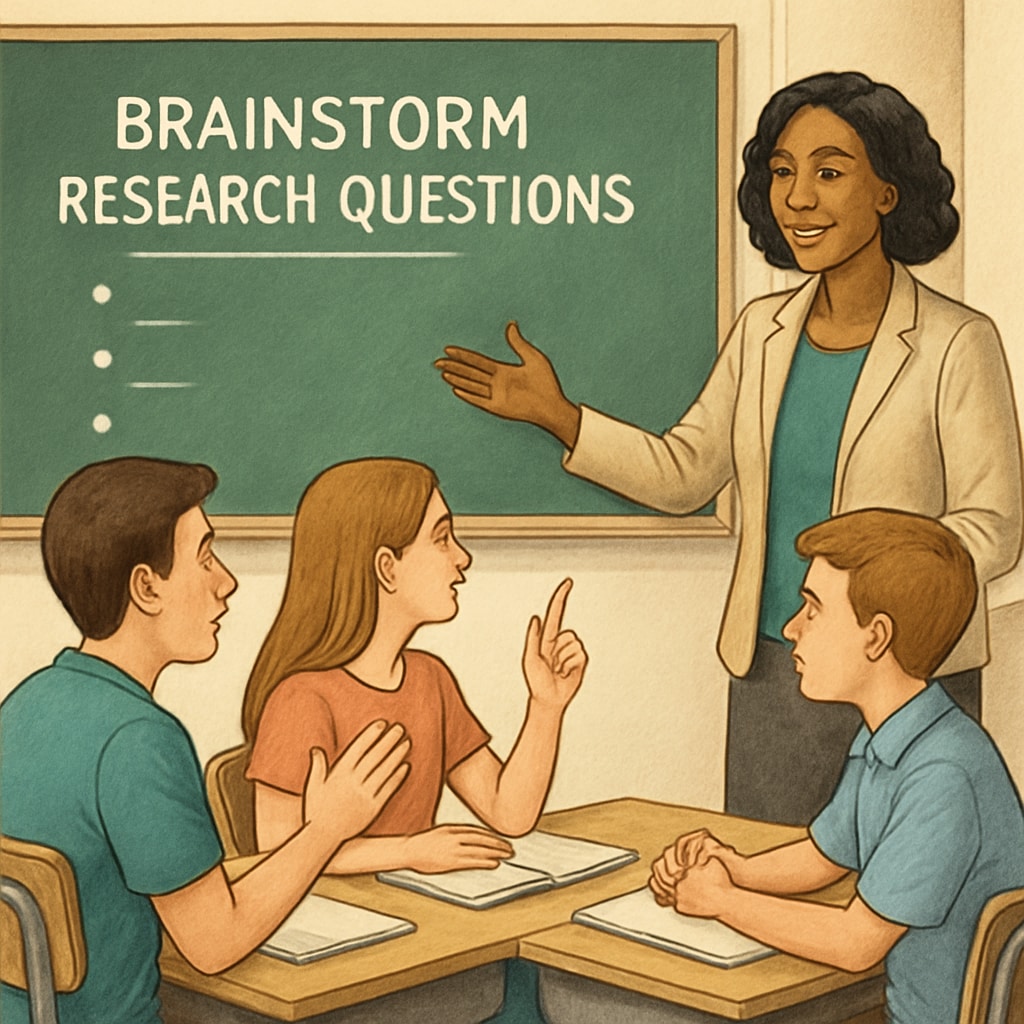Formulating effective research questions is a crucial skill in K12 education, empowering both teachers and students to engage in meaningful inquiry-based learning. A well-crafted research question serves as the foundation for critical thinking, problem-solving, and independent exploration. In this article, we will delve into the characteristics of strong research questions, outline the steps to create them, and provide actionable strategies to enhance this process. By doing so, we aim to provide essential tools to help educators and students alike master the art of research question formulation.
What Makes a Good Research Question?
A good research question is specific, clear, and focused. It guides the direction of inquiry, ensuring that the research remains on track. Additionally, it should be open-ended, encouraging exploration rather than a simple yes-or-no answer. For example, instead of asking, “Is climate change real?” a stronger question might be, “What are the major factors contributing to climate change, and how can they be mitigated?”
Effective research questions also align with the student’s age and cognitive level. In K12 settings, questions should challenge students appropriately, fostering curiosity without overwhelming them. Furthermore, they should be researchable, meaning there is sufficient information available to explore the topic thoroughly.

Steps to Formulate Strong Research Questions
Developing an effective research question is a step-by-step process. Below, we outline a simple framework that educators can use to guide students:
- Choose a Broad Topic: Begin by identifying a general area of interest, such as environmental science, history, or technology.
- Narrow Down the Topic: Encourage students to focus on a specific aspect of the topic. For instance, within environmental science, they could focus on renewable energy sources or the impact of deforestation.
- Ask Open-Ended Questions: Frame questions that require analysis, synthesis, and evaluation. Avoid questions with straightforward answers.
- Evaluate the Question: Check if the question is clear, focused, and researchable. Revise if necessary.
- Test the Question: Conduct preliminary research to ensure there is enough information available to address the question comprehensively.
By following these steps, students can develop research questions that are both meaningful and manageable within their academic level.
Practical Strategies for Educators
Teachers play a pivotal role in helping students master research question formulation. Here are some practical strategies for classroom implementation:
- Model the Process: Demonstrate how to create research questions by thinking aloud and providing examples. This helps students understand the thought process behind effective question formulation.
- Use Graphic Organizers: Tools like mind maps or question webs can help students visually organize their thoughts and narrow down their topics.
- Encourage Collaboration: Group activities where students brainstorm and critique each other’s questions can foster creativity and critical thinking.
- Provide Feedback: Offer constructive feedback on students’ questions, highlighting strengths and areas for improvement.
In addition, incorporating real-world examples and case studies can make the process more engaging. For instance, students could analyze how historical figures approached problem-solving and frame their research questions accordingly.

Conclusion: The Role of Research Questions in Lifelong Learning
Formulating effective research questions is not just an academic skill but a lifelong tool for critical thinking and problem-solving. By mastering this process in their K12 years, students build a strong foundation for future academic and professional endeavors. Educators, through thoughtful guidance and support, can empower students to ask meaningful questions that inspire curiosity and drive discovery.
As a result, fostering these skills in the classroom is essential for preparing students to navigate the complexities of the modern world. By prioritizing research question formulation, we can cultivate a generation of inquisitive, independent thinkers ready to tackle the challenges ahead.
Readability guidance: This article maintains short paragraphs and uses lists to summarize key points. Passive voice is minimized, and transitions like “for example,” “as a result,” and “in addition” improve flow and coherence.


